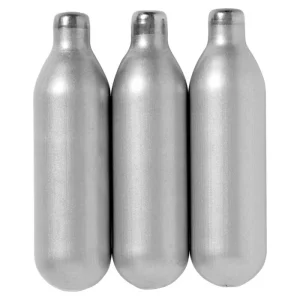In the bustling city of Manchester, dental care has evolved beyond the customary check-up and cleaning. With an emphasis on comprehensive, personalised care, the private dentist Manchester scene is thriving, offering a plethora of advantages over traditional NHS services. From advanced technologies and treatments, highly skilled practitioners, to flexible payment options, the benefits of opting for a private dentist are many. Private dentistry provides an unparalleled level of service, whether you’re seeking a routine cleaning, a root canal treatment, or a complete smile makeover. The focus is always on ensuring the highest quality of care, comfort, and convenience for every patient.
Personalised Treatment Plans
One of the main benefits of choosing a private dentist in Manchester is the personalised treatment plans they offer. Unlike standard dental practices, private dentists take time to fully understand your unique dental needs and lifestyle. Then, utilising their extensive knowledge and expertise, they create a tailored treatment plan to address these needs. Whether it’s correcting a dental issue, maintaining oral health or enhancing the aesthetics of your smile, they ensure that the treatment plan fits you perfectly. This personalised approach not only optimises results but also enhances the overall dental care experience, making private dentistry a worthy investment for your oral health.

Advanced Dental Technology
In the realm of private dentistry, the use of advanced dental technology is a game-changer. Private dentists in Manchester adopt cutting-edge technologies that enable more accurate diagnosis, less invasive procedures, and faster recovery times. From digital X-rays, intraoral cameras, to laser dentistry, these technologies not only improve the precision of treatments but also enhance patient comfort. Moreover, private practices often stay ahead of the curve, regularly updating their equipment with the latest advancements. This commitment to technology ensures you receive the most effective and innovative care, setting private dentistry apart from the traditional model.
Comfort and Convenience
Another significant perk of choosing a private dentist in Manchester is the enhanced comfort and convenience provided to patients. Private practices often pride themselves on creating a relaxing and welcoming environment, which can significantly ease any dental anxieties. Besides, the convenience of flexible appointment schedules, minimal wait times, and prompt service can make your dental visits a breeze. Offering extended hours and even weekend appointments, they cater to your busy lifestyle. The goal is to ensure your dental care fits seamlessly into your life, making private dentistry an ideal choice for those seeking a stress-free and convenient dental experience.
Highly Skilled Professionals
Private dentists in Manchester are renowned for their high level of skill and expertise. They typically possess extensive training in various fields of dentistry and stay updated with the latest research and developments. Their proficiency ensures that no matter the complexity of your dental issue, it can be effectively handled with precision and care. Furthermore, these professionals often have a passion for their craft, demonstrating a level of commitment and attention to detail that transcends the norm. From routine check-ups to intricate procedures, they deliver an exceptional level of treatment that reflects their knowledge and dedication. Choosing a private dentist in Manchester means entrusting your oral health to a highly skilled professional, ensuring optimal outcomes for your treatments.
Comprehensive Range of Services
Choosing a private dentist in Manchester avails you to a comprehensive range of services often not found in standard practices. From preventative care, diagnostics, restorative treatments, orthodontics to cosmetic dentistry, they can cater to an array of dental needs. Furthermore, many private practices offer specialist services, such as implants, veneers, teeth whitening and more, all under one roof. By providing an extensive suite of services, private dentists ensure that you won’t need to visit multiple providers for your dental care. This convenience, combined with their commitment to excellence, makes private dentistry a holistic solution for preserving and enhancing your smile.
Flexible Payment Options
A unique advantage of choosing a private dentist in Manchester is the flexibility in payment options they offer. Unlike standard practices, private dentists often provide an array of payment methods and financing options to make your dental care more affordable. From interest-free finance plans, dental membership schemes, to pay-as-you-go services, they endeavour to cater to different budgetary needs. This flexibility allows you to access high-quality dental care without the worry of immediate payment, spreading the cost over a period that suits you. By providing accommodating payment options, private dentistry ensures that investment in your oral health doesn’t have to be a financial burden.
Enhanced Patient Experience
At the heart of private dentistry is a commitment to an enhanced patient experience. Private dentists in Manchester strive to provide exceptional care, not only through quality treatments but also through a focus on patient comfort, understanding and convenience. From the moment you step into their modern, inviting practices, you’re treated with kindness and respect. You’re not just another appointment in their calendar, but a valued individual whose oral health matters. Furthermore, they take time to explain procedures, answer questions, and discuss your dental concerns, ensuring you feel informed and confident about your care. This commitment to a superior patient experience is what makes opting for a private dentist Manchester a truly worthwhile choice.













